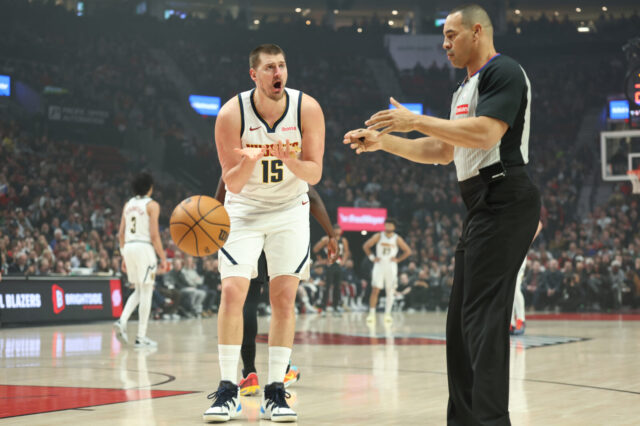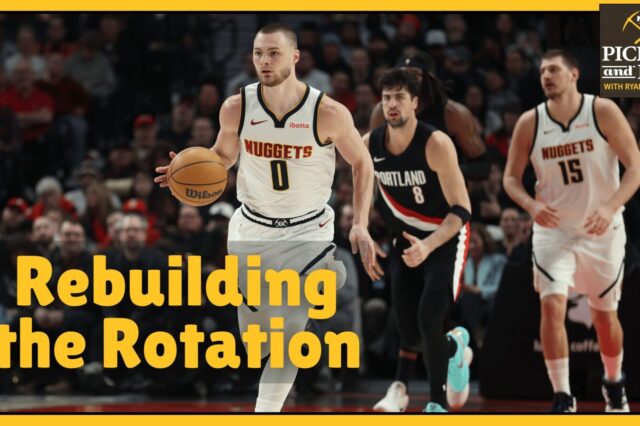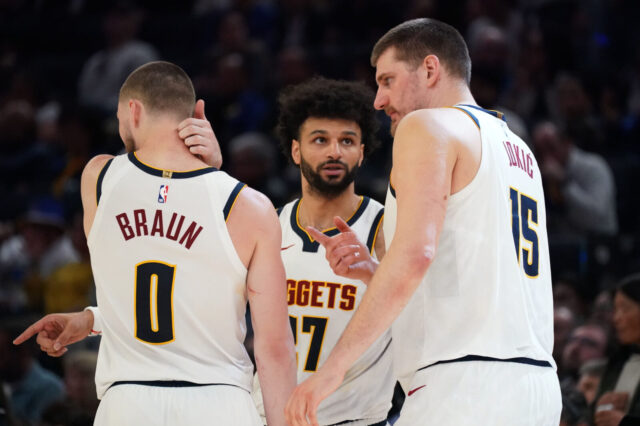It’s no secret that June 25, 2015 is a pivotal day in the young tenure of Tim Connelly. The Nuggets vice president of basketball operations has little to no room for error when it comes to the seventh-overall pick in the NBA Draft. His team has too many needs on the court, and in the locker room, to miss in the first round of 2015.
Denver not only needs a player that’ll become a cornerstone of the franchise, they need a player that’ll become a leader in the locker room and someone to reinvigorate the fans. Short story, the Nuggets need to find a superstar at No. 7 or this isn’t going to be a quick reload; it’s going to be complete rebuild.
There’s no doubt that finding a franchise player is much easier said than done. Unless you draft someone like LeBron James, developing a superstar is a team effort. There needs to be good coaches in place to help each player reach their talent potential. But before coaches and practice, it all starts with talent. Teams need to find the players with raw talent. For the Denver Nuggets, that player is Stanley Johnson.
Johnson has said he’s the best player available in the 2015 draft, and he might be right. If he’s around when the Nuggets go on the clock, they’d be foolish not to take the player who shined during his lone season at the University of Arizona. Johnson is going to be the next James Harden.
The differences between Harden and Johnson are clear – like comparing a Wildcat and Sun Devil, which is blasphemous. Johnson was the best player in the country on one of the best teams; in college, Harden wasn’t the best player in his conference. As a one-and-done, Johnson has been surrounded by hype since arriving on campus. Harden was largely unnoticed during his time in Tempe. Johnson’s draft class is loaded. Harden’s draft class included Stephen Curry and Blake Griffin, but has been largely underwhelming – see: Thabeet, Hasheem; Evans, Tyreke; Rubio, Ricky and Flynn, Johnny.
Those differences are superficial; on the court, Johnson has the same upside as Harden. They share the rare combination of speed, power and athleticism. But just like with Harden, Johnson’s natural ability has yet to be polished. He needs to become a much better shooter and develop a better sense of when to attack or when to take over a game. These are the same things Harden struggled with when playing at Arizona State, but all of that is coachable.
The biggest similarity between the two is will and instinct. During an MVP-worthy campaign in 2014-15, “The Beard” was unstoppable, taking over games. His competitive drive was second to few in the NBA. While it took time to pull that out of Harden, Johnson will bring that to his new team day one.
Like the Broncos, the Nuggets didn’t go out “kicking and screaming” last season. Denver had no heart; when the going got tough, they quit. Ty Lawson quit. Kenneth Faried quit. Brian Shaw quit. But there’s no quit in Johnson. Take his performance against Wisconsin in the Elite Eight as example of that.
Arizona lost that game and Johnson’s stat line was less than desirable – only six points and two rebounds. As Arizona’s best player, that looks bad; but many people forget that Johnson played most of the second half with blurry vision after being head-butted in the eye. He gutted it out and stayed on the floor because his teammates needed him. Was it the right decision? Probably not, but no one currently on the Nuggets roster can question or match that desire or drive. That’s a trait desperately missing from Pepsi Center.
At Arizona, Johnson handled the pressure of being the best player on the best team. Sean Miller said he was one of the team’s leaders from his first day on campus. Johnson led by example. He not only played hurt in the biggest game of his life, but he started all but one game as one of the youngest true freshmen in the country.
Come June 25, Tim Connelly will be making his biggest decision as the Nuggets VP. He has one goal: Find a superstar to carry the franchise. The choice is clear: Take the diamond in the rough; take Stanley Johnson.



